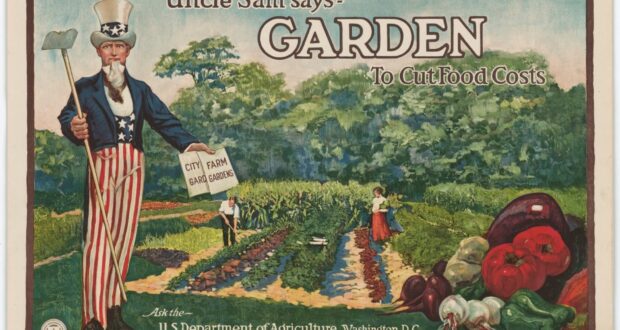Blog
War Gardens of World War II and the American heritage of self -sufficiency
During World War II, American households received a governmental call to the development of “war gardens”, later known as “victorious gardens”. These small, homemade vegetable plots have become symbols of independence, patriotism and immunity. War gardens provided the necessary food supplies during each global conflict and reduced pressure on a stressed agricultural system in the country.
They supported the sense of community among citizens. Today, the conclusions of these war gardens are more suitable than ever, because food safety remains an insisting problem in an unpredictable world.
The role of commemorative seeds in war gardens
Commemorative seeds were crucial for the success of war gardens during World War II. These seeds, transmitted by generations, produced solid, aromatic and nutritious crops. In contrast to many hybrid seeds available today, souvenir seeds were open, which means that they can be saved and exaggerated from year to year, providing a balanced source of food for families. This was especially important during the war, because commercial seeds were often in a short time, and rationing made every resource valuable.
Vegetables, such as tomatoes, beans, cucumbers and squash, grown from souvenir seeds, have become staples in war gardens. These plants were resistant and flexible, capable of developing in various climates and soil conditions. By practicing their own food, families can contribute to war efforts by reducing the demand for commercial food supply, which prioritized nutrition troops abroad.
Modern call to act: why the self -sufficiency of food is important today
In today’s world, food self -sufficiency is just as important as in the 1940s. Global supply chains allow supermarkets to store food from all corners of the world, but these systems are not infallible. Even disasters, pandemies, geopolitical conflicts and economic slowdown can interfere with the flow of goods, leaving empty shelves and sensitive families.
Covid-19 Pandemia emphasized the fragility of modern food systems, with shortages of fresh products and other necessary rules in many areas. These experiences emphasize the importance of having the possibility of local food cultivation, whether in gardens in the yard, social plots or urban roof spaces.
Benefits of backyard and social gardens
Cultivating the garden, individually or as part of the community, offers many benefits. It reduces dependence on external food sources, provides access to fresh and healthy products and saves money in the long run. In addition, gardening promotes sustainable environmental development by reducing the trace of carbon transport over large distances of food.
Rooted in immunity! Like the war gardens, our nation in the 1940s during World War II, today’s social gardens, can inspire a new era of self -sufficiency.
Social gardens also provide neighbors with opportunities for cooperation, sharing knowledge and building stronger social ties. In the era marked with digital interactions, gardening offers a chance to re -combine with nature and self.
Planting your own immunity seeds
Time to prepare for tomorrow uncertainty … It is today. Americans can draw inspiration from the war gardens of World War II, using souvenir seeds for growing vegetables rich in nutrients that nourish both the body and the spirit. Launching the garden in the yard does not require much space – accounts, raised beds and even small stains of soil can bring surprisingly abundant harvest.
Social gardens can also serve as contemporary victory gardens, promoting a larger -scale self -sufficiency. Churches, schools and non -profit organizations should encourage and support these efforts, providing resources and education to help citizens succeed. In the world of complex challenges, gardening remains a simple but powerful act. We advise the promise of immunity, independence and sustainable development by planting seeds.
Like the war gardens, they helped to keep the nation in time, today’s gardens can enable people and communities to survive the storms of an uncertain future. Start from Commemorative seeds And let the draft of these war gardeners inspire a new era of self -sufficiency.

